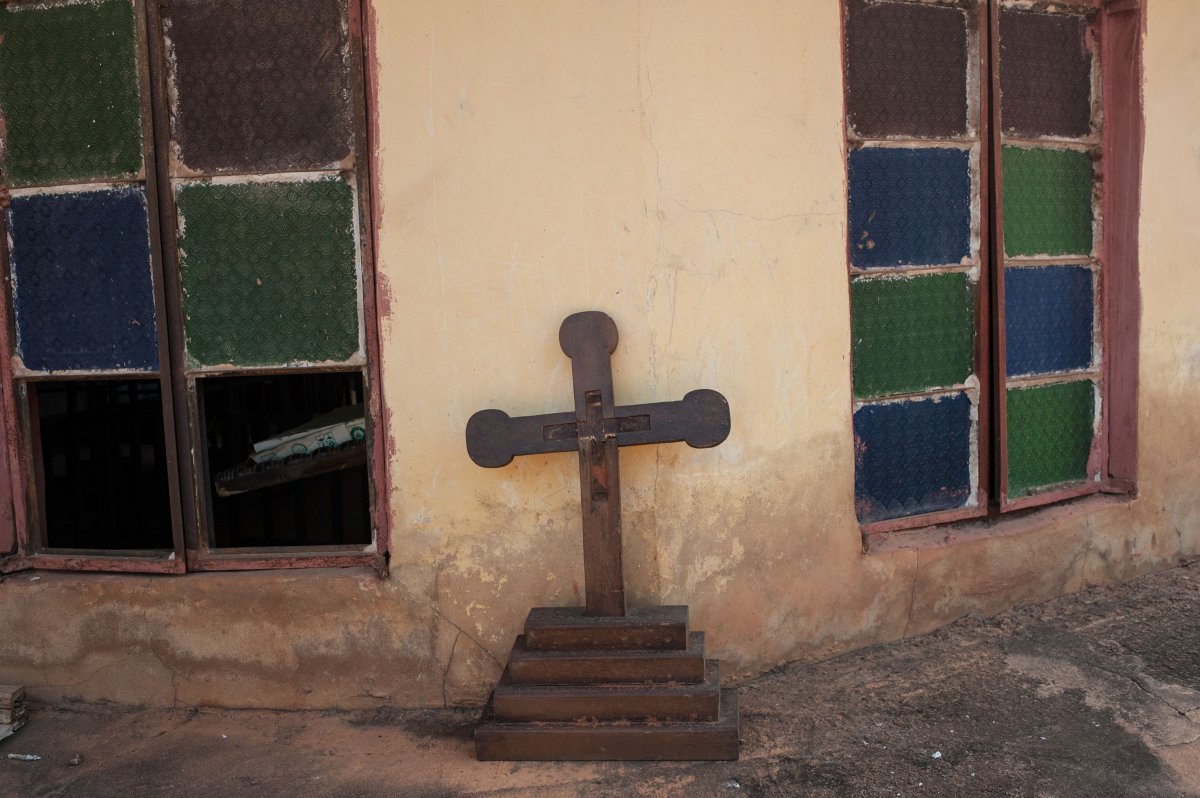There are at least seven countries in the world where you can be sentenced to death for the "crime" of blasphemy. Currently, in Nigeria, Sufi musician Yahaya Sharif-Aminu faces death by hanging for sharing a religious message on popular messaging platform WhatsApp. Now challenging the constitutionality of the blasphemy law before the Supreme Court of Nigeria, Yahaya's case has the potential to overturn Nigeria's most draconian blasphemy law once and for all.
Yahaya is a young Sufi Muslim man who, in March 2020, committed the "crime" of sharing a message containing song lyrics expressing his religious beliefs. After he was accused of blaspheming against the Prophet Muhammad, his house was burned down by an angry mob. Yahaya was arrested, charged, and, without representation of a lawyer, sentenced to death by hanging by a local Sharia judge in Kano State, Northwest Nigeria.
Yahaya's conviction was overturned in an appeal, but rather than dismiss the absurd charges against him, the appellate courts have ordered that he be retried—a move that will almost certainly result in re-conviction and re-imposition of his previously handed down death sentence.
Resolute in his innocence, Yahaya has now brought his case before the Supreme Court of Nigeria, arguing that the blasphemy law under Kano State's Sharia Penal Code directly violates both Nigeria's own constitution and binding international human rights treaties. His legal arguments are outlined in the notice of appeal he filed on Nov. 9.
Nigerian human rights defenders have been waiting 22 years for the opportunity to bring this potentially landmark case before the Nigerian Supreme Court. Yahaya's challenge will mark the first time the constitutionality of blasphemy is taken up by the country's top judges.
Although blasphemy laws are not unique to Nigeria, all eyes are on the country given the potential worldwide impact of this case. Roughly 40 percent of countries in the world have some form of blasphemy law. The Nigerian Supreme Court has before it an opportunity to take a momentous stance against one of the most regressive blasphemy laws on the books—punishable by hanging—and to defend without reserve the freedom of expression and freedom of religion inherent to every person.

With his very life at stake, Yahaya has been catapulted to the forefront of the fight against blasphemy laws in Nigeria, but his story is far from an isolated incident. The criminalization of blasphemy carries with it perilous repercussions for Nigerian society. In a country of more than 200 million, split nearly evenly between Christians and Muslims, these laws are a significant driver of conflict. As in every country where such laws are enforced, the criminalization of blasphemy punishes the innocent for expressing their beliefs, silences minorities from sharing their faith, and perpetuates largescale societal violence.
Yahaya's appeal comes at the same time when voices are mounting in calling for the United States to reinstate Nigeria as a "Country of Political Concern" on the State Department's list of the world's worst religious freedom violators. The U.S. Commission on International Religious Freedom (USCIRF) is "appalled" the U.S. government recently removed Nigeria from this list, calling it "inexplicable" in light of escalating violence in the country. In the time between January 2021 and March 2022 alone, over 6,000 Christians were targeted and killed in Nigeria.
In May of this year, Christian student Deborah Yakubu was stoned to death and her body burned in Sokoto state, Nigeria, after classmates deemed her WhatsApp messages blasphemous. Following this tragedy, Rhoda Ya'u Jatau, a Christian woman from the north, is now on trial for blasphemy for sharing a WhatsApp message condemning Deborah's brutal killing. And earlier this year, humanist Mubarak Bala was sentenced to 24 years in prison for a social media post critical of Islam.
In Nigeria, any person of faith or no faith at all can fall prey to criminal blasphemy accusations and sanctions. So long as these laws exist and are enforced, true peace and progress for Nigeria will be severely hindered. If the country is to live up to its own Constitution and its commitments under international human rights law, the Court has no choice but to unequivocally overturn the harsh blasphemy laws in the northern states, making clear that Yahaya committed no crime.
In overturning the country's blasphemy laws, Nigeria would take a critical step toward reconciliation in a country fraught with religious tensions and would pave the way for other countries to do the same. Blasphemy laws create a climate of censorship, fear, and violence, and are ultimately incompatible with human rights. Everyone has the right to express their opinions, and in a free society, all should be able to express their beliefs without fear. Now is the time for defenders of human rights everywhere to stand with Yahaya as he fights not only for his own life but also for the rights of all Nigerians.
Kelsey Zorzi is director of advocacy for global religious freedom at ADF International, which is supporting the case of Yahaya Sharif-Aminu at the Supreme Court of Nigeria. Find her on Twitter at @KelseyZorzi.
The views expressed in this article are the writer's own.
Uncommon Knowledge
Newsweek is committed to challenging conventional wisdom and finding connections in the search for common ground.
Newsweek is committed to challenging conventional wisdom and finding connections in the search for common ground.
About the writer
To read how Newsweek uses AI as a newsroom tool, Click here.








